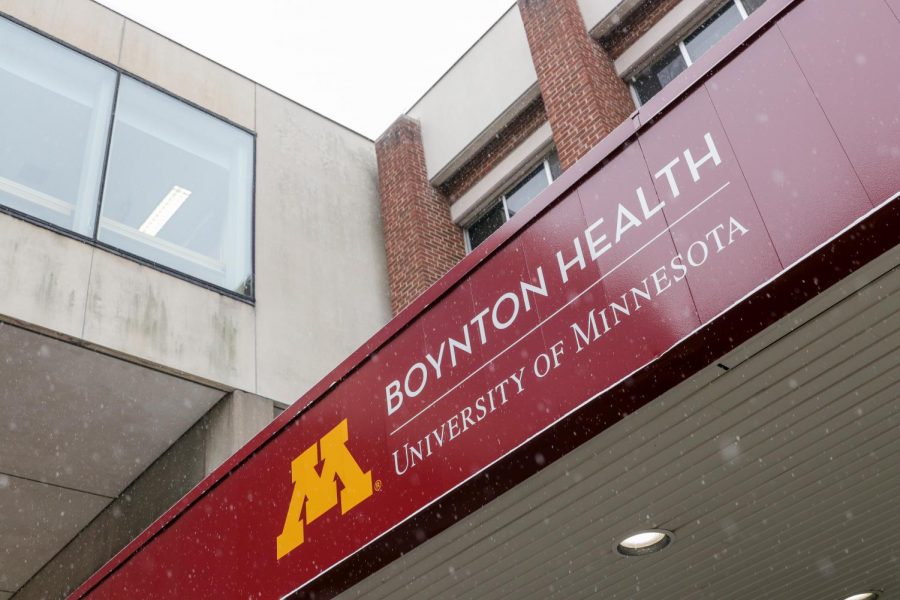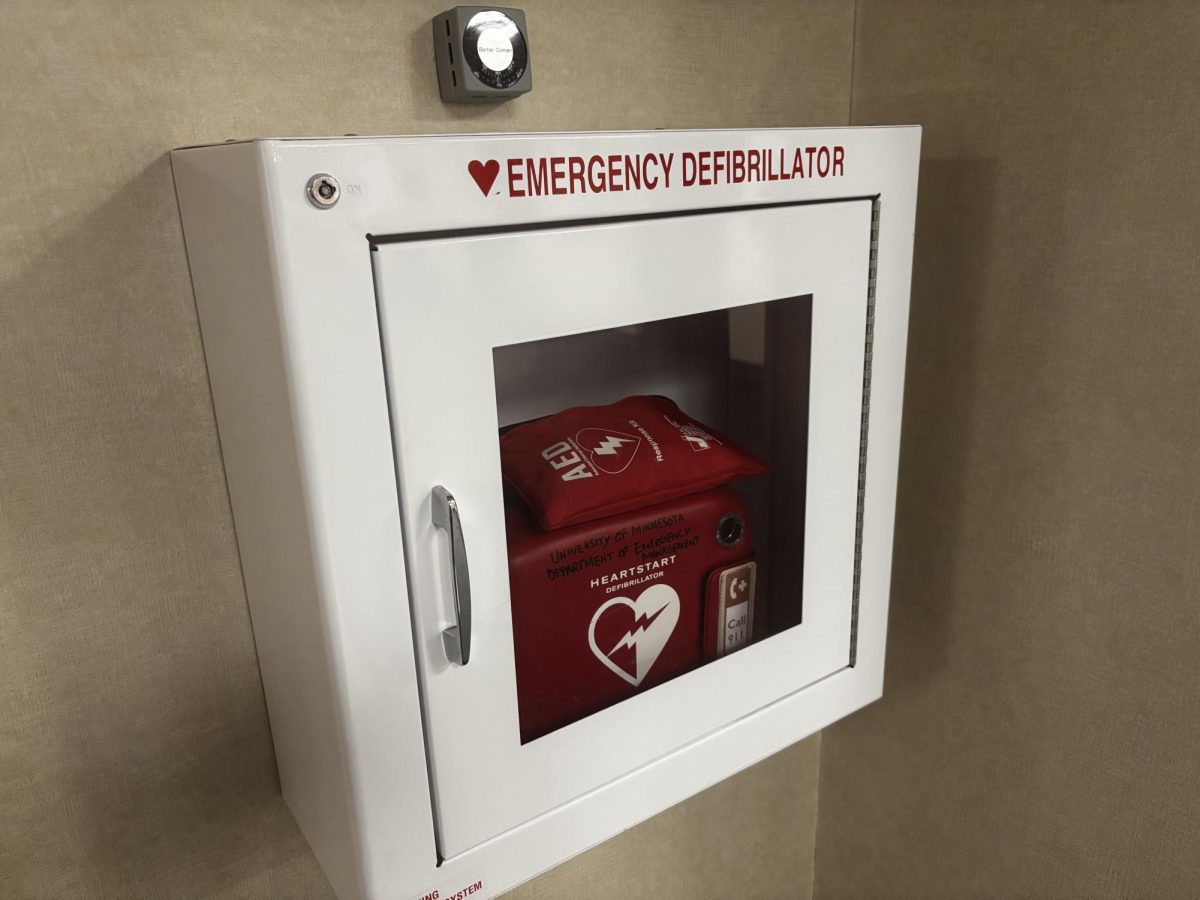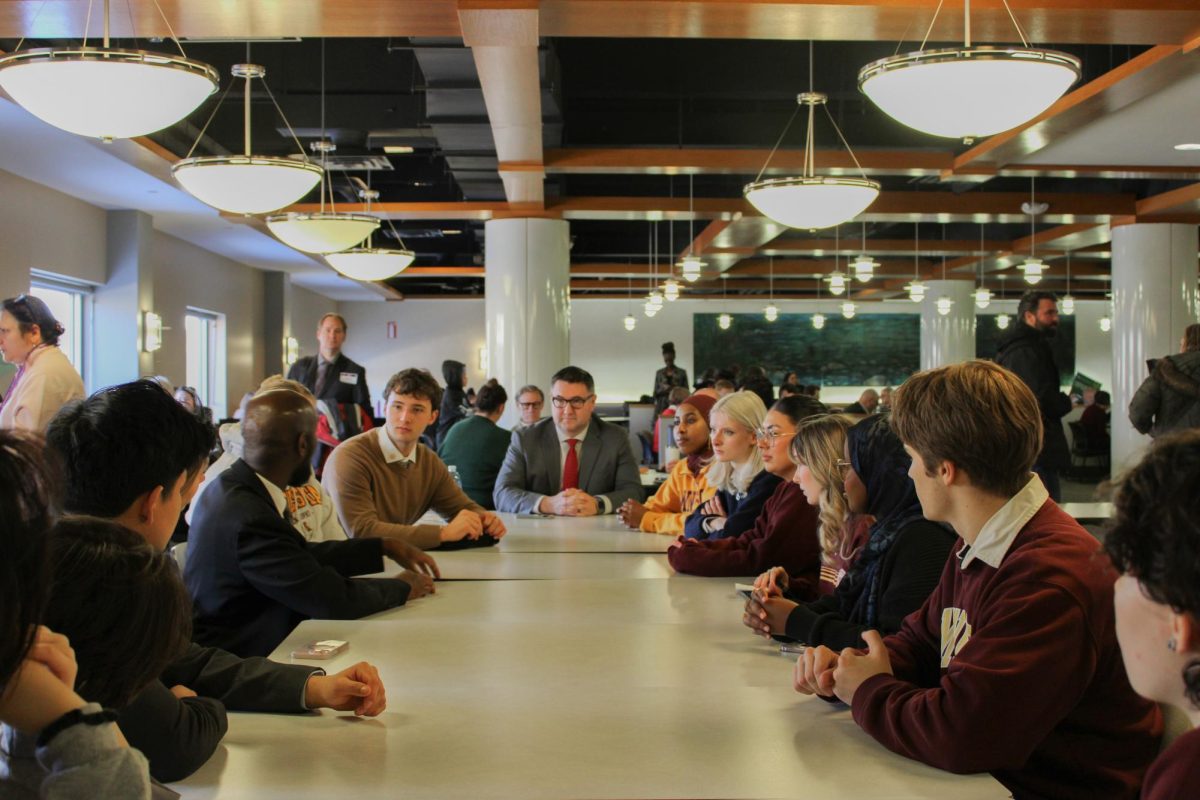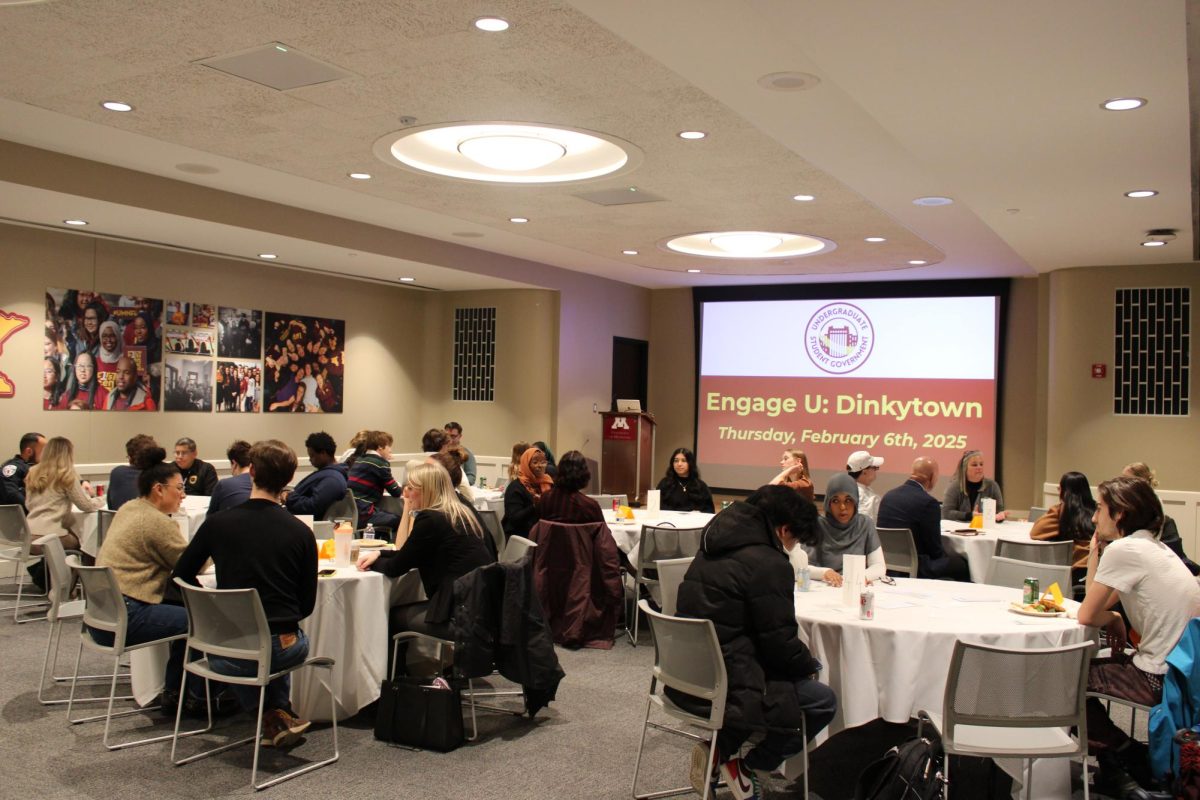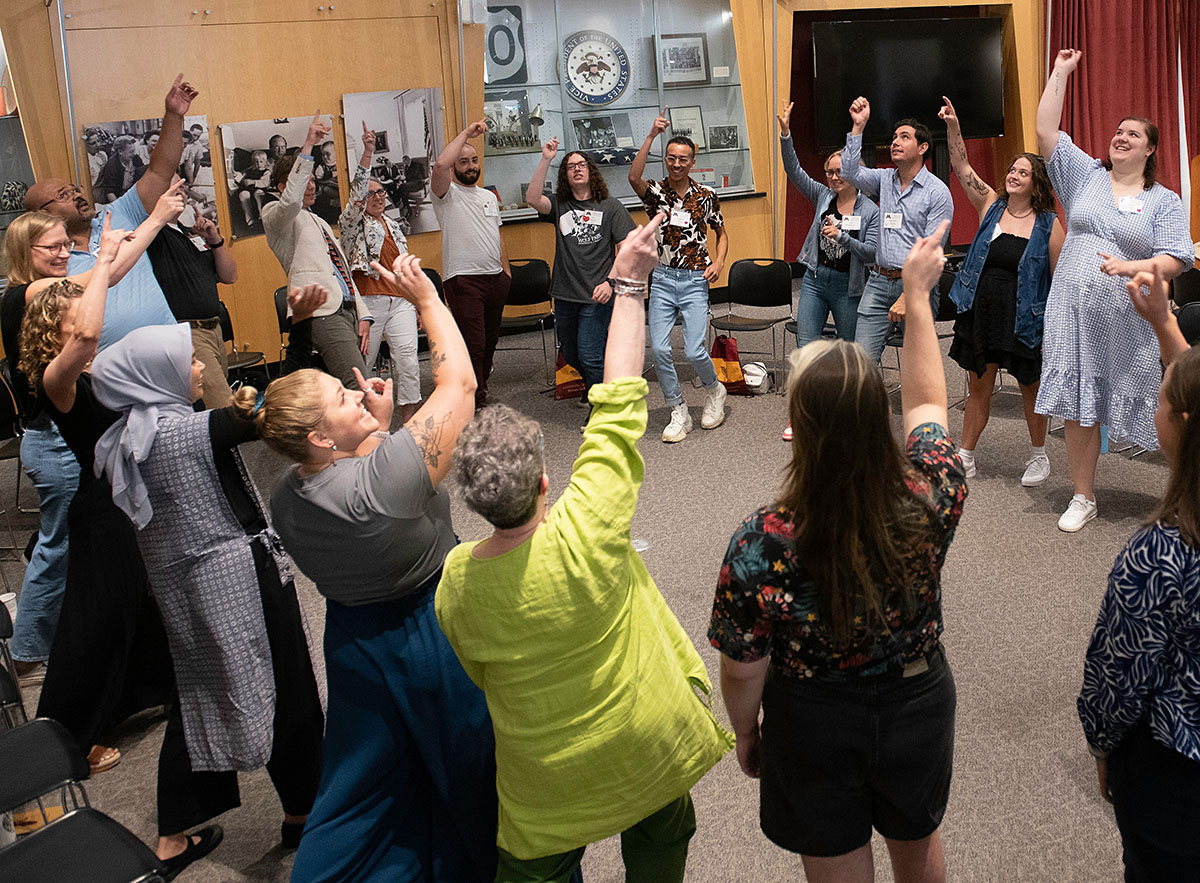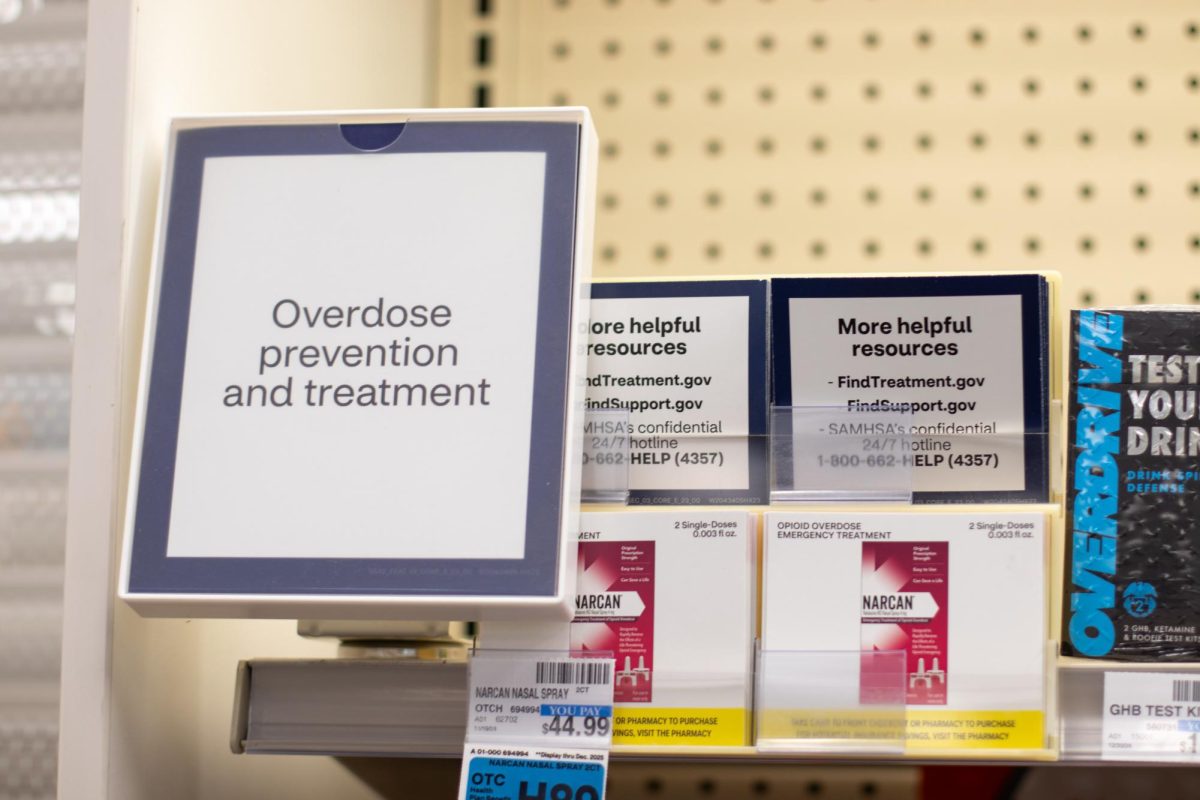University of Minnesota Undergraduate Student Government (USG) leadership said spring semester priorities include new and further work on food insecurity, campus safety and college affordability.
USG President Rahma Ali and Vice President Clara Jünemann said USG is turning its attention to what it hopes to accomplish at Big Ten on the Hill, a student government conference USG will attend in the spring.
Food insecurity
Ali said she wants to continue to tackle food insecurity on campus with the Supplemental Nutrition Assistance Program (SNAP). SNAP is the largest federal program that helps eligible people with financial needs get more money for food, and it includes some online retailers and food at grocery stores.
Ali said USG will continue to prioritize adding an affordable grocery store on campus.
In Feb. 2024, USG formed its Food Insecurity Ad-Hoc Committee to combat food insecurity issues on and around campus, which includes an affordable grocery option for students.
The Food Insecurity Ad-Hoc Committee sought to expand food security on campus by expanding the Nutritious U Food Pantry, continuing the Farmer’s Market on campus and bringing back the Mobile Market to the University, a 2021 USG initiative to provide students with low-cost grocery options.
Ali said USG will continue to push for an affordable grocery store on campus.
“We want to make sure we have affordable groceries on campus and students are able to access affordable groceries when in need,” Ali said.
Shae Horning, USG director of state affairs, said USG’s Government and Legislative Affairs (GLA) team is working to strengthen existing food resources on campus. One such resource is the Hunger Free Campus grants program, which supports food pantries and other food resources on campuses statewide. Horning said GLA hopes to work on this during the ongoing state legislative session.
Campus safety
In terms of campus safety, Ali said USG wants to collaborate with the University’s Department of Emergency Management and Department of Public Safety to ensure SAFE-U alerts are sent out promptly. Ali said USG’s Campus Specialized Committee will work with these University departments to ensure changes are made to enhance SAFE-U’s effectiveness.
SAFE-U is the University’s emergency mass notification system. As part of the Clery Act, all students, faculty and staff are required to receive emails with SAFE-U alerts, according to the University.
Ali said, from experience, she was concerned about the timeliness of SAFE-U alerts. She said safety alerts are not sent out immediately, and students do not get an email or alert until after the danger passes.
“It’s a concerning campus safety issue not having SAFE-U’s safety alerts being sent out immediately once those crimes happen on campus, and instead getting an email 45 minutes after it’s happened,” Ali said.
The Clery Act is a federal law requiring colleges and universities to collect campus crime data and share that information with the public.
College affordability
Ali said USG is looking to increase financial aid support by pushing for a $100 increase in the Pell Grant.
The Federal Pell Grant is through the Free Application for Federal Student Aid (FAFSA) and is awarded to undergraduate students who display financial need and have not earned their bachelor’s, graduate or professional degree.
Ali said USG is looking to have general support for keeping federal aid programs like FAFSA, the Pell Grant, work studies and scholarships that are available to students.
Horning said USG will advocate to standardize the letters that outline students’ financial aid during the state legislative session.
“I still remember this process, when you’re applying for college and you get your award letter that outlines your financial aid and I remember it being really confusing,” Honing said. “So what we’re advocating for is to kind of standardize it.”
Horning said everything is expensive nowadays, and that costs are high for students. Given the legislature’s makeup, there is not a lot of money to spend this year on new services after Gov. Tim Walz announced his recommended budget on Jan. 28, according to Horning.
“There’s not a ton of money to spend, so we can’t really go to the legislature and ask for things that would cost a bunch of money,” Horning said. “So we are just being creative and finding ways to still support students without going that route.”
Big Ten on the Hill
Big Ten on the Hill is a conference where student leaders from universities in the Big Ten Conference go to Washington D.C. in March to meet with members of Congress, the presidential administration and national advocacy groups to advocate for the needs of students at the federal level.
Ali said USG’s priorities range from drafting and prioritizing ideas to bringing such ideas to representatives, legislators and others to advocate for students on a federal level.
Ali said increased federal funding for affordable student housing, food insecurity and transportation are USG priorities for the conference.
“Once we have representatives supporting our bills and priorities, they can ensure and make sure that all Big Ten schools or all colleges and universities across the nation are aware of these federal priorities,” Ali said. “And universities can implement those initiatives and projects at their institutions.”
During Big Ten on the Hill, the USG delegation will work with Minnesota senators including Sen. Amy Klobuchar, Congresswoman Ilhan Omar and Sen. Tina Smith, according to Ali.
“Our representatives have always been supportive, they’ve always worked with us to get these priorities on this to the Senate and to the House,” Ali said. “If they’re not passed that same year, they make sure it never leaves the table to continue those conversations.”






